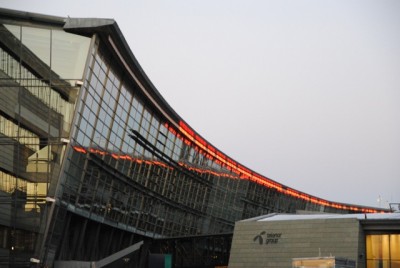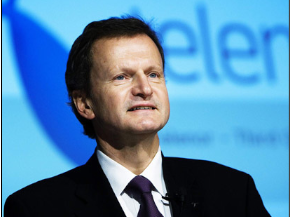VimpelCom Ltd, the Russian mobile phone firm in which Norway’s Telenor owns a major stake, has admitted in its latest quarterly report to shareholders that it violated various anti-corruption laws in connection with its expanded operations into Uzbekistan. VimpelCom also disclosed that it’s been negotiating a settlement with authorities in the US and the Netherlands.

That’s likely to result in a huge fine, as well as further tarnish the reputation of both VimpelCom and its main owners, businesses controlled by Russian oligarch Mikhail Fridman and Norway’s Telenor. Oslo-based newspaper Dagens Næringsliv (DN) reported Wednesday morning that VimpelCom disclosed it’s been in discussions with authorities following their lengthy investigation into corruption charges at VimpelCom, and that they’ve agreed on a settlement.
Telenor appeared ready with a response to its partly-owned VimpelCom’s admission, acknowledging the “prospective settlements” in which VimpelCom would admit to “certain violations of corruption laws.” Telenor wrote in its own press release Wednesday morning that VimpelCom also “indicates that they will pay a fine.” That fine may amount to around USD 900 million, according to provisions VimpelCom made last fall.
Telenor noted that VimpelCom’s “prospective settlements” remain subject to the approval of “pertinent authorities,” though, and that there’s “no assurance they will become effective.” Telenor went on to state that “corruption is unacceptable” and that the Norwegian company “takes it very seriously that VimpelCom now seems to acknowledge certain violations of the US Foreign Corrupt Practices Act and relevant Dutch laws.” Telenor, which has been caught up in the corruption allegations around VimpelCom for several years, said it would be “unable” to make any further comments until VimpelCom’s settlement with authorities is finally approved and made publicly available.

The Norwegian company’s involvement with VimpelCom, which began in the 1990s as a means of making money on the then-emerging mobile phone boom, ended up causing it serious problems and embarrassment. Telenor, which evolved from being Norway’s publicly owned telephone utility into an international telecoms company with private investors as well as the Norwegian state, initially bought into VimpelCom in 1998 as a means of expanding into former Soviet republics. Telenor took on Fridman and his company Alfa as a partner in 2002.
Telenor and Fridman’s interests later landed in serious legal battles over control of VimpelCom, but they settled after difficult rounds in various courts and the company’s headquarters was moved to Amsterdam. Telenor ended up as a minority partner in VimpelCom while the Russian-controlled company continued its international expansion. Telenor still holds a 33 percent stake in the company along with 43 percent of the votes, though, and had several of its own top executives placed both in VimpelCom’s top management and on VimpelCom’s board, also when the expansion into Uzbeikstan occurred. VimpelCom’s own website shows that Fridman still controls VimpelCom through a 56 percent stake in the company held by his LetterOne Group.
The corruption charges swirling around VimpelCom for the past few years have been an enormous problem for Telenor and the Norwegian government, which still holds a 54 percent stake in Telenor. The drama climaxed last year as the investigation heated up and Telenor’s new chief executive, Sigve Brekke, tried to start with a clean slate that ultimately set off a chain of events that included the forced resignation/firing of Telenor’s chairman, the arrest of Telenor’s former “wonderboy” Jo Lunder (who’d been installed as chief executive at VimpelCom but quit last year), the suspensions of several top Telenor executives who’d been involved with VimpelCom and rounds of parliamentary hearings.
At issue are payments VimpelCom made in connection with its acquisition of licenses to do business in Uzbekistan. Payments amounting to a reported USD 100 million were made to a so-called “post box company” called Talikant registered in Gibraltar that was owned by a girlfriend of Gulnara Karimova, daughter of Uzbekistan’s authoritarian president.
Authorities in the US, the Netherlands, Switzerland and Norway have cooperated in the investigation of the payments, which were widely viewed as bribes. Indications that VimpelCom was indeed guilty of paying bribes came last fall, when the Amsterdam-based company set aside USD 900 million to cover possible fines and costs tied to its investments in Uzbekistan.
Telenor has been accused of ignoring the corruption allegations at VimpelCom, has admitted it withheld information about the case and has tried selling off its VimpelCom stake. The company has since cut all ties to its former chief executive Baksaas while his replacement, Brekke, tries to move forward and address many other challenges facing a large company like Telenor. VimpelCom’s announcement of a pending settlement with authorities had been widely predicted by stock analysts and corruption experts, as a means of paying the fine and moving on itself.
newsinenglish.no/Nina Berglund

